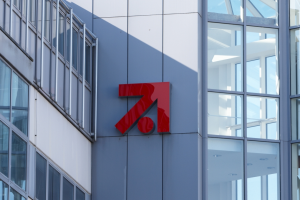
After more than 40 years of operation, DTVE is closing its doors and our website will no longer be updated daily. Thank you for all of your support.
ProSiebenSat.1 rejects MFE call for split-up

Source: ProSiebenSat.1
Germany’s ProSiebenSat.1’s management has comprehensively rejected MediaForEurope’s (MFE) call for the company to be split up, with the broadcaster’s e-commerce and dating activities spun off from the core business, along with a raft of other proposals.
ProSiebenSat.1’s executive and supervisory boards rejected MFE’s proposal for the separation of the group’s dating and video and commerce and ventures segment from the core entertainment business segment.
MFE, ProSiebenSat.1’s leading shareholder, has called for a vote on the proposal at the German group’s annual general meeting, to be held on April 30.
MFE has called for ProSiebenSat.1’s executive board to prepare a spin-off of the non-core activities and to submit this and a transfer agreement to a subsequent general meeting no later than the next AGM in 2025.
The plan would see the creation of two separate listed companies with independent management teams, with existing shareholders holding stakes in both pro rata to their stakes in ProSiebenSat.1.
MFE said that the executive board’s repeatedly stated intention to refocus on entertainment had not been accompanied by any material progress to date.
Sale strategy better than split
Rejecting the plan, the German broadcaster’s management said that they had “consistently pursued” their strategy of focusing on entertainment over the past year, and that they were preparing the sale of “certain investments” in. the commerce and ventures and dating and video segments, with the intention that the proceeds would be used to reduce the company’s debt.
They said that a split up would increase the financial leverage of ProSiebenSat.1 to up to 4.1x adjusted EBITDA, crippling its ability to make strategic acqusitions.
This, they said would be “detrimental to the necessary further development of the company’s core business in the medium term”.
The broadcaster said that a split would inevitably be followed by the spinning off of other units including SevenVenture, leading to a loss of advertising synergies between the rump group and the spun-oiff assets.
The net result, they said, would be a reduction in the market capitalisation of ProSiebenSat.1 and share price, while net debt would remain unchanged.
ProSiebenSat.1’s management also argue that the spun-off company would incur a significant ‘conglomerate discount’ of its own, as it would comprise multiple assets with different business models and would not be attractive to investors.
Board change call rejected
The German broadcaster’s management also rejected calls by MFE for board changes, notably its call for supervisory board memger Rolf Nonnenmacher to be replaced by former Italian EY auditor Simon Scettri.
ProSiebenSat.1 said that Scettri’s involvement would carry the risk of a conflict of interest because of a potential claim the company could make against EY in relation to its auditing of the group prior to 2023, when a regulatory problem involving the Jochen Schwizer mydays subsidiary surfaced.
In a further sign of the deteriorating relationship between ProSiebenSat.1 management and MFE, the former rejected calls by MFE for changes to its authorized capital and articles of incorporation, arguing that MFE’s proposals collectively “entail the risk of a reduction in value for the company and its shareholders”.
MFE’s call for a split and other changes came after its chief executive, Pier Silvio Berlusconi, publicly called for change in an interview with Corriere della Sera, arguing that “it is now important for ProSieben to change course and return to investing in television”.
Berlusconi said the group should separate its dating and ecommerce activities with a split on the model of Vivendi’s plans, to give a better valuation to these assets.
He indicated that MFE did not have any ambition to take over ProSiebenSat.1, but that MFE wanted to create a cross-border media combination that still enabled local players to deliver content suited to the local audience.


